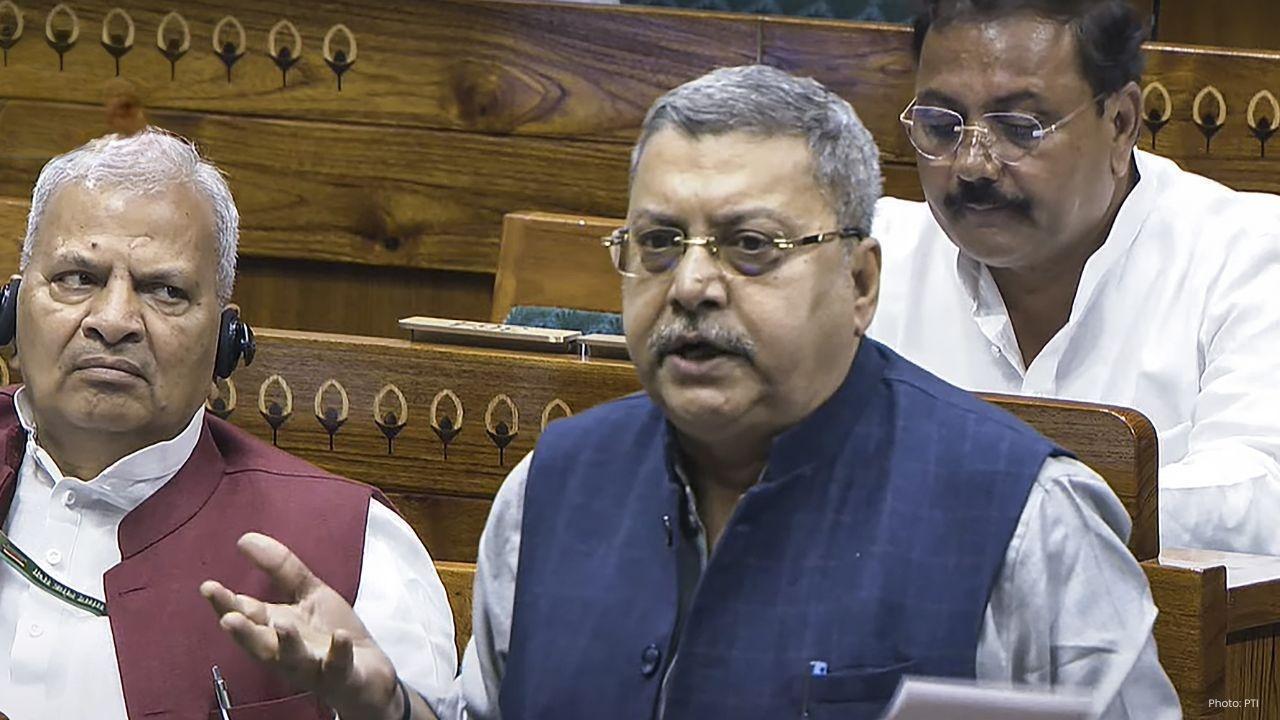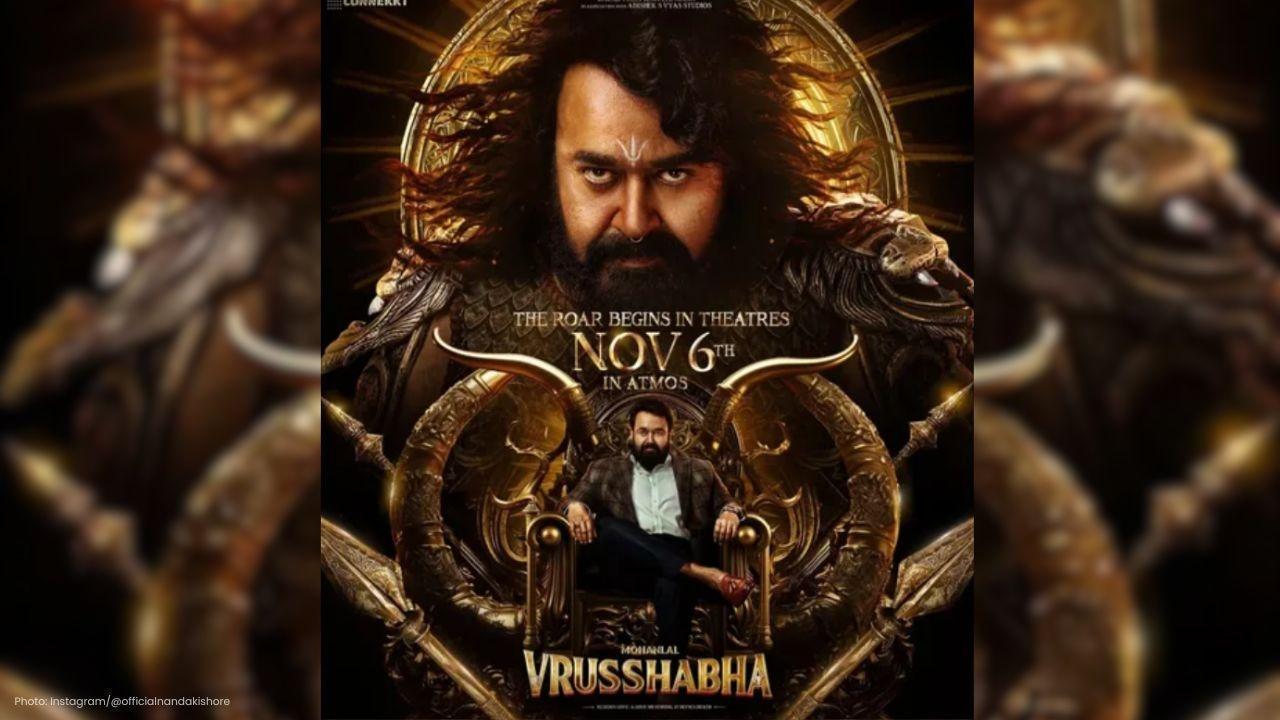
Post by : Mina Rahman
Netflix’s recent release, Baramulla, helmed by director Aditya Suhas Jambhale and co-written by Jambhale and Aditya Dhar, diverges from the typical supernatural thriller. This film plunges into the grim realities that torment Kashmir—focusing on the trauma of militancy, loss, and displacement, making for a poignant narrative about the Valley’s troubled history and the ghosts that linger.
Spanning 1 hour and 52 minutes, Baramulla intricately balances reality with psychological stress and supernatural themes. However, this balancing act at times leads to complexity and a swift climax, packing in a substantial amount of backstory and revelations.
The film follows DSP Ridwan Shafi Sayyed, portrayed by Manav Kaul, who is relocated from Reasi to Baramulla. Entrusted with uncovering the mystery behind the disappearance of six schoolboys in the snow-laden Valley, Ridwan becomes convinced that militants are indoctrinating children with anti-India rhetoric and abducting them to become terrorists across the border, all while navigating the rising unrest in the region.
Beyond being a stoic officer, Ridwan struggles with his own Post-Traumatic Stress Disorder (PTSD). Supporting him is his wife Gulnaar, a strong yet sensitive character who channels her feelings into poetry on her blog, along with their two kids—rebellious teen Noorie and lonely, sensitive Ayaan—who all grapple with adapting to city life. Their fraught family dynamics illustrate the strain of holding together amidst adversity. Arguments over minor issues and longstanding grievances expose a family under duress trying to maintain unity in a place that lacks solace.
The Sayyed family resides in a seemingly refreshed house steeped in secrets, a metaphor for the Valley itself, concealing emotional scars beneath fragile exteriors. The house, equipped with an antique landline and shadowy corners, takes on a life of its own, fostering a palpable discomfort.
As the narrative unfolds, supernatural elements subtly infiltrate the atmosphere; shadows come alive, and eerie phenomena manifest, evoking a chilling ambiance akin to The Haunting of Hill House. Yet, in contrast to conventional ghost stories, Baramulla suggests that the true horror lies in the trauma and dread stemming from years of conflict and grief rather than mere paranormal occurrences.
A notable symbol within the film is the white tulip, serving as a MacGuffin—a narrative device that propels the story. Traditionally depicted in Bollywood as a representation of love and beauty, as seen in films like Silsila and Prem Rog, here, it is inverted to signify dread and despair. The sight of this delicate flower against the bleak, snow-blanketed landscape of Kashmir encapsulates a striking contrast, where the absence of warmth and vibrancy gives way to a cold and somber backdrop.
This imagery mirrors the film's portrayal of Kashmir, stripped of its usual vivid allure, instead wrapped in a chilling silence that echoes the pain of its inhabitants.
While Baramulla is commendable for its sensitive storytelling and nuanced depiction of Kashmiri lives—both Pandit and Muslim—it does harbor imperfections. The storyline can feel cluttered at times, particularly toward the ending, where the pacing accelerates and multiple plot lines converge abruptly. This can overwhelm the audience as it grapples with a torrent of layered revelations and emotional undertones.
Nonetheless, the film effectively highlights the human toll of the Valley’s struggles, transcending mere headlines to humanize families ensnared in the turmoil, blending psychological drama with suspenseful and horrific elements.
Baramulla stands as a distinctive and vital addition to Indian cinema’s portrayal of Kashmir, reframing the essence of horror from ghosts and external foes to trauma and internal wounds. With stellar performances, particularly from Manav Kaul and the supporting cast, paired with a screenplay that strives to voice untold narratives, the film presents a haunting reflection on grief, loss, and the potential for healing.
For audiences drawn to narratives that investigate socio-political matters through the lens of psychological horror, Baramulla offers a compelling, albeit sometimes dense, cinematic experience, reminding us that the most terrifying ghosts are often the ones we harbor inside.










Paramount+ Wins Five-Year Deal to Stream PBR’s 'Unleash the Beast'
Paramount+ has inked a five-year streaming agreement to carry PBR's Unleash the Beast live from Dece

Zohran Mamdani's Historic NYC Win Marked by Bollywood Finale
Zohran Mamdani captured the New York mayoralty — the city's first Muslim and South Asian mayor — and

Indian Tennis Veteran Rohan Bopanna Ends Illustrious Career
Rohan Bopanna retires from tennis at 45 after winning two Grand Slams, becoming world number one, an

Babar Azam Becomes Top Run Scorer In T20I Cricket History
Pakistan’s Babar Azam has overtaken India’s Rohit Sharma to become the highest run-scorer in men’s T

BTS Comeback 2026 Group Plans Biggest-Ever Global Tour
BTS is set for a long-awaited comeback in 2026, followed by a massive 65-city world tour. Fans hope

India Stuns Australia to Reach Women’s World Cup Final
India shocked seven-time champions Australia in the Women’s World Cup semi-final, chasing 339 runs w